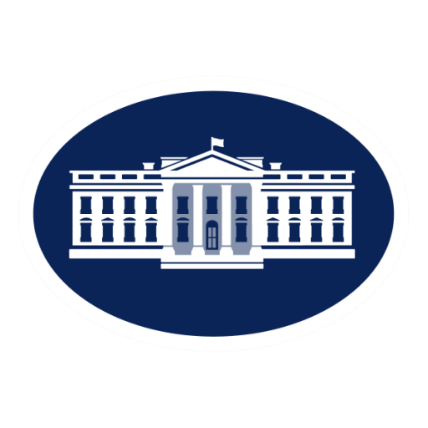NYAPRS Note: The Biden-Harris Administration has been working to improve mental health services and address the growing workforce crisis nationwide. Through their comprehensive national mental health strategy and the latest federal budget, the Administration has pushed for more funding and actions to address three major areas: strengthening the mental health workforce and system capacity, connecting more Americans to care, and creating a continuum of support. We are especially happy to see the Administration’s recent actions highlight the need to expand peer support. To facilitate this, SAMHSA’s Office of Recovery has been developing National Model Standards for Peer Support Certification. NYAPRS will continue working at both the state and federal level to advance funding and other supports for the expansion of peer services with a focus on retaining the integrity of peer support while integrating peers in more areas of the system. See below for the recent fact sheet on the Administration’s new actions.
Fact Sheet: Biden-Harris Administration Announces New Actions to Tackle
Nation’s Mental Health Crisis
The White House Briefing Room | May 18, 2023
Actions include $200 million to scale up 988 suicide and crisis lifeline and new resources
for school-based mental health services.
This Mental Health Awareness Month, we honor all those experiencing mental health challenges and celebrate the mental health professionals, families, and caregivers who support them. It is clear that our country is facing an unprecedented mental health crisis impacting people of all ages. In 2021, two in five American adults reported experiencing symptoms of anxiety and depression and forty-four percent of high school students reported struggling with persistent feelings of sadness or hopelessness, exacerbated by the COVID-19 pandemic, social media, and gun violence. The Biden-Harris Administration is firmly committed to addressing this crisis.
As part of his Unity Agenda, President Biden released a comprehensive national strategy to transform how mental health is understood, accessed, treated, and integrated in and out of health care settings. Across the federal government, thanks to the President’s American Rescue Plan (ARP) and Bipartisan Safer Communities Act (BSCA), the Administration has already invested unprecedented levels of funding to expand access to mental health services. The President’s FY24 budget goes further, proposing tens of billions more to transform behavioral health services for all Americans.
Today, which is recognized as Mental Health Day of Action, and throughout Mental Health Awareness Month, the Biden-Harris Administration is announcing additional critical actions to advance the President’s mental health strategy across its three key objectives: strengthening the mental health workforce and system capacity, connecting more Americans to care, and creating a continuum of support.
Strengthen the Mental Health Workforce and System Capacity
Addressing the mental health crisis requires that we confront the severe shortage of mental health professionals and strengthen the capacity of the behavioral health care system. As a result, the Biden-Harris Administration is taking new actions this month to:
Increase the size and diversity of the behavioral health workforce. Thanks to the Bipartisan Safer Communities Act (BSCA), the Department of Education (ED) has awarded more than $280 million in funding to bolster the pipeline of mental health professionals serving in schools and expand school-based mental health services and supports. Earlier this week, ED announced $95 million of this total was awarded in grants across 35 states to increase access to school-based mental health services and strengthen the pipeline of mental health professionals in high-needs school districts. Grantees from ED’s mental health programs project that these funds will create more than 14,000 new mental health professionals in U.S. schools – including school psychologists, counselors, social workers. This month, ED also announced new funding for a center that will provide technical assistance to grantees working to address the critical need in prekindergarten-12 schools for school-based mental health service providers. This summer, the Health Resources and Services Administration (HRSA) will announce a new Behavioral Health Workforce Education and Training (BHWET) funding opportunity for approximately $8.4 million to support 16 awards to recruit and train providers to provide behavioral support to children and adolescents.
Expand access to peer support. A peer worker is someone with lived experience with a mental health and/or substance use condition, and who works with other people with similar conditions in a wide range of non-clinical activities including advocacy, navigation and linkage to resources, sharing of experience, social support, and more. In the coming weeks, the Substance Abuse and Mental Health Services Administration (SAMHSA) will release the National Model Standards for Peer Support Certification. The new standards are designed to improve consistency across peer certifications and promote quality of the growing number of peer workers across the nation.
Enhance crisis response. To ensure those in crisis have access to services, SAMHSA announced the availability of more than $200 million for states, territories, call centers, and Tribal organizations to continue strengthening 988 operations. Through the SAMHSA supported 988 Suicide and Crisis Lifeline, the network receives approximately 100,000 calls, chats, and texts each week. Later this month, SAMHSA will also announce more than $9 million in awards in cooperative agreements for community crisis response partnerships. This funding will support mobile crisis response teams to ensure adults and youth experiencing mental health crises in high-need communities receive faster access to trained mental health professionals.
Expand proven models of care. To build capacity to meet the mental health needs of Americans, the Department of Health and Human Services (HHS) awarded 15 one-year state planning grants to help states develop the necessary capacity to compete to participate in the Certified Community Behavioral Health Center (CCBHC) Medicaid Demonstration. CCBHCs provide 24/7, comprehensive behavioral health care – including crisis care – to the most vulnerable Americans regardless of their ability to pay. Thanks to BSCA, we are working to expand these clinics and help more states enter the program…
Read the full fact sheet on The White House’s online briefing room.
